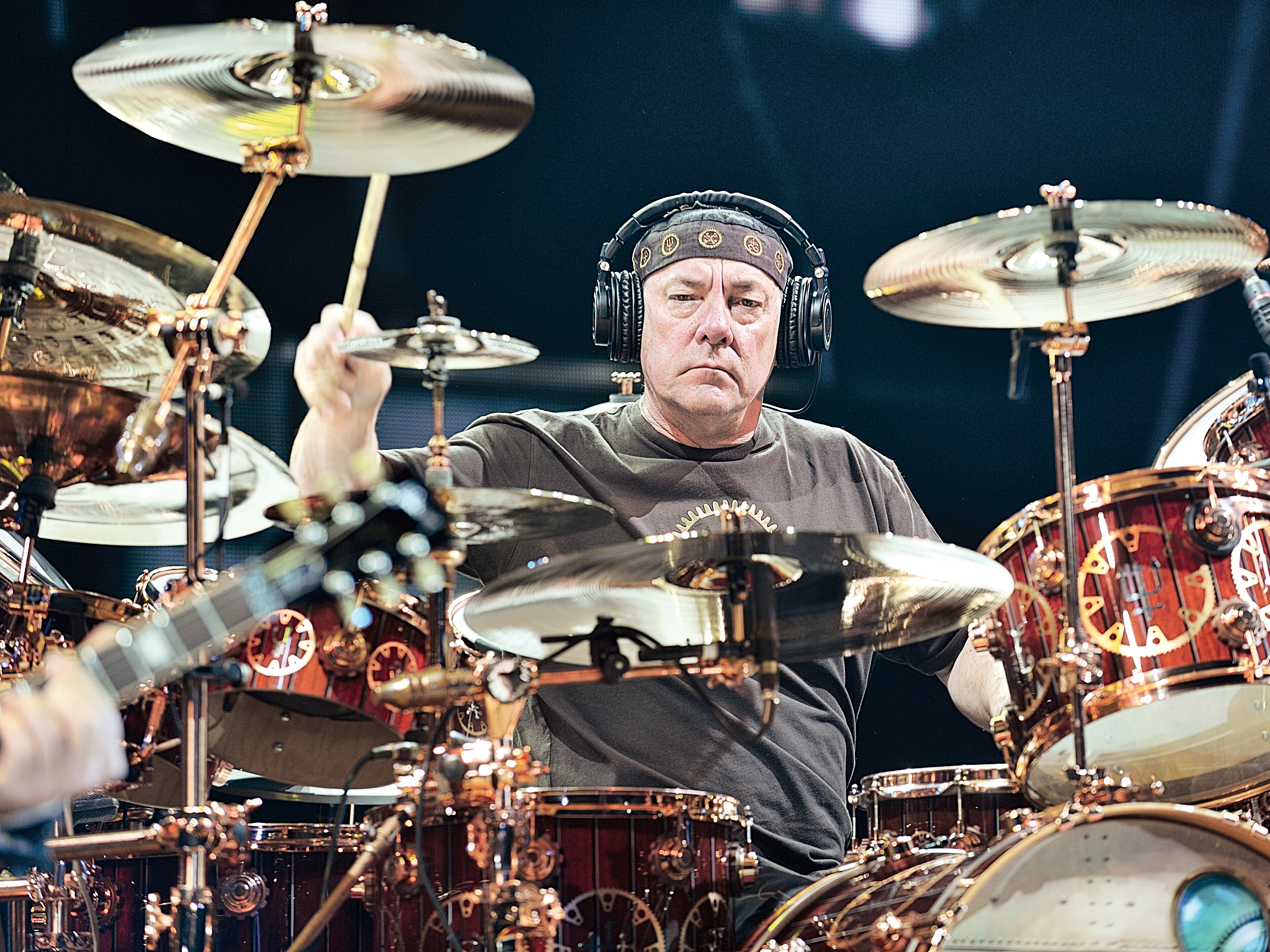
Neil Peart
Since he joined Rush back in 1975, Neil Peart has been the poster boy for prog – disciplined, metronomic and powerful. Nearly 40 years on and he and the world’s foremost power trio are still pushing themselves and breaking new ground.
Neil’s first role model for drumming excellence was Gene Krupa, and at 13 Neil convinced his parents to let him take lessons, but he had to wait to play real drums.“My parents gave me lessons, sticks and a pad,” he says. “They said, ‘If you do this and practise every week for a year then you get drums.’ That’s still what I tell parents. Get [your kids] sticks and a practice pad and lessons and if they do it for a year then they’re serious, then get them drums. A lot of them look at it like a toy these days. I’ve talked to parents who’ve said, ‘I don’t want them to get that serious, it’s just for a toy.’ I’m like, ‘A drumset – a TOY?!’ It’s hard not to get irate about that because it’s been the focus of my life.”
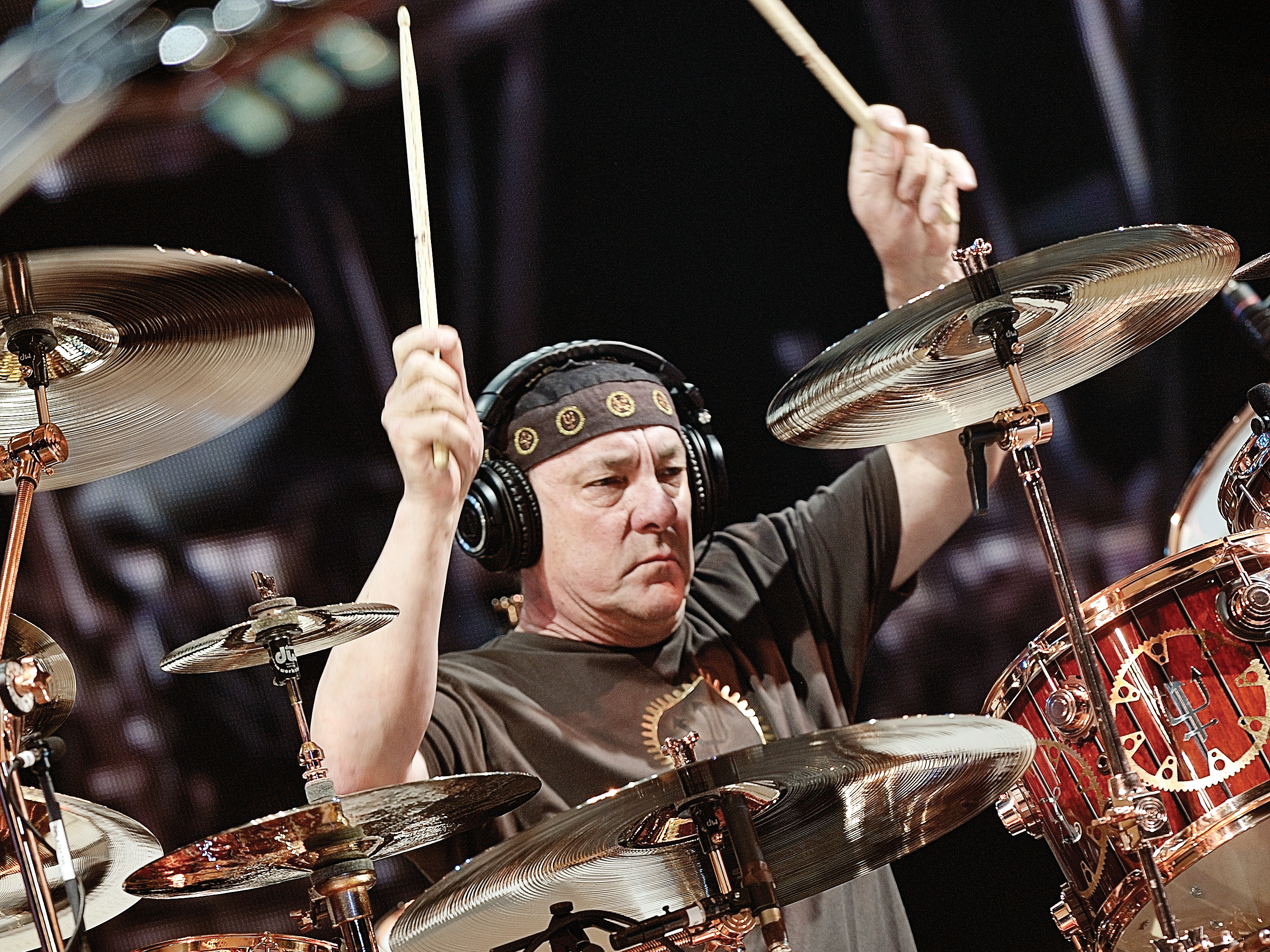
Neil on… his early development
“While I was playing along with records, all the frustrations were tempo things – getting excited when you play a fill and then getting tired after. I always joke about this with young drummers. They get excited and speed up when they play a fill and then they get tired and slow down. It’s so natural, right?
"And it’s a lifelong pursuit to develop good time. I’m talking about spanning four decades for me, first of all just trying to play the tempos like the records, then being in the studios and having to deal with click tracks and sequencers from the late-’70s and playing in mathematical time. I learned a lot about the click track, how you can make it breathe. It doesn’t have to be a mechanically-driven clock at all, it’s a guide.”
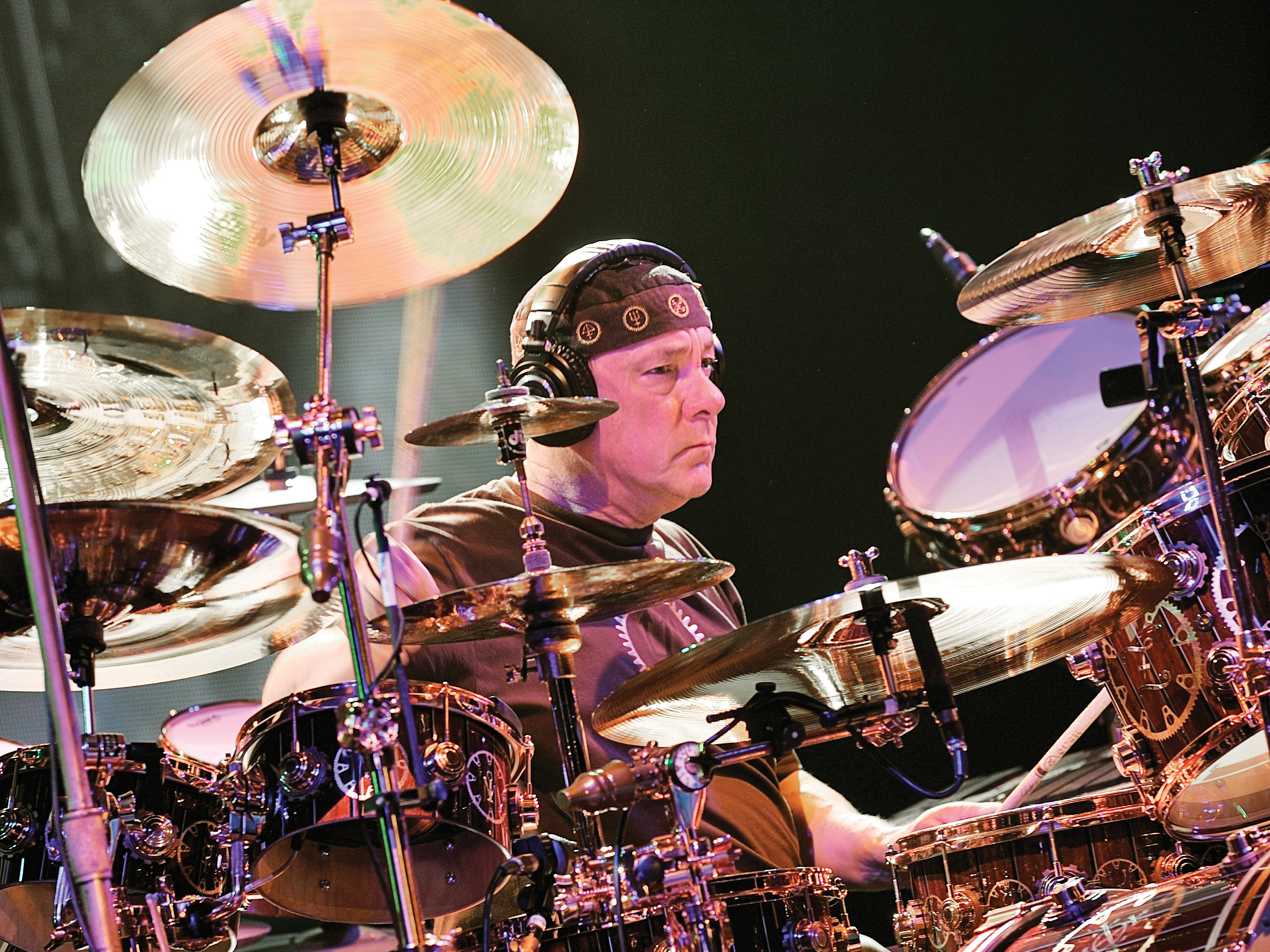
Neil on… continuing to develop his solos
“Pure improvisation, everybody knows, is inherently risky. I improvise within a framework but I’ve been able to take myself so far out of my former comfort zone with that kind of nurturing over time.
"Inevitably every improviser finds that you find something you like and you want to do it again the next night. It’s hard not to – that really worked, it led into the other thing so great, and the audience loved it and all that – but to be true to the spirit of it you can’t let yourself do that.”
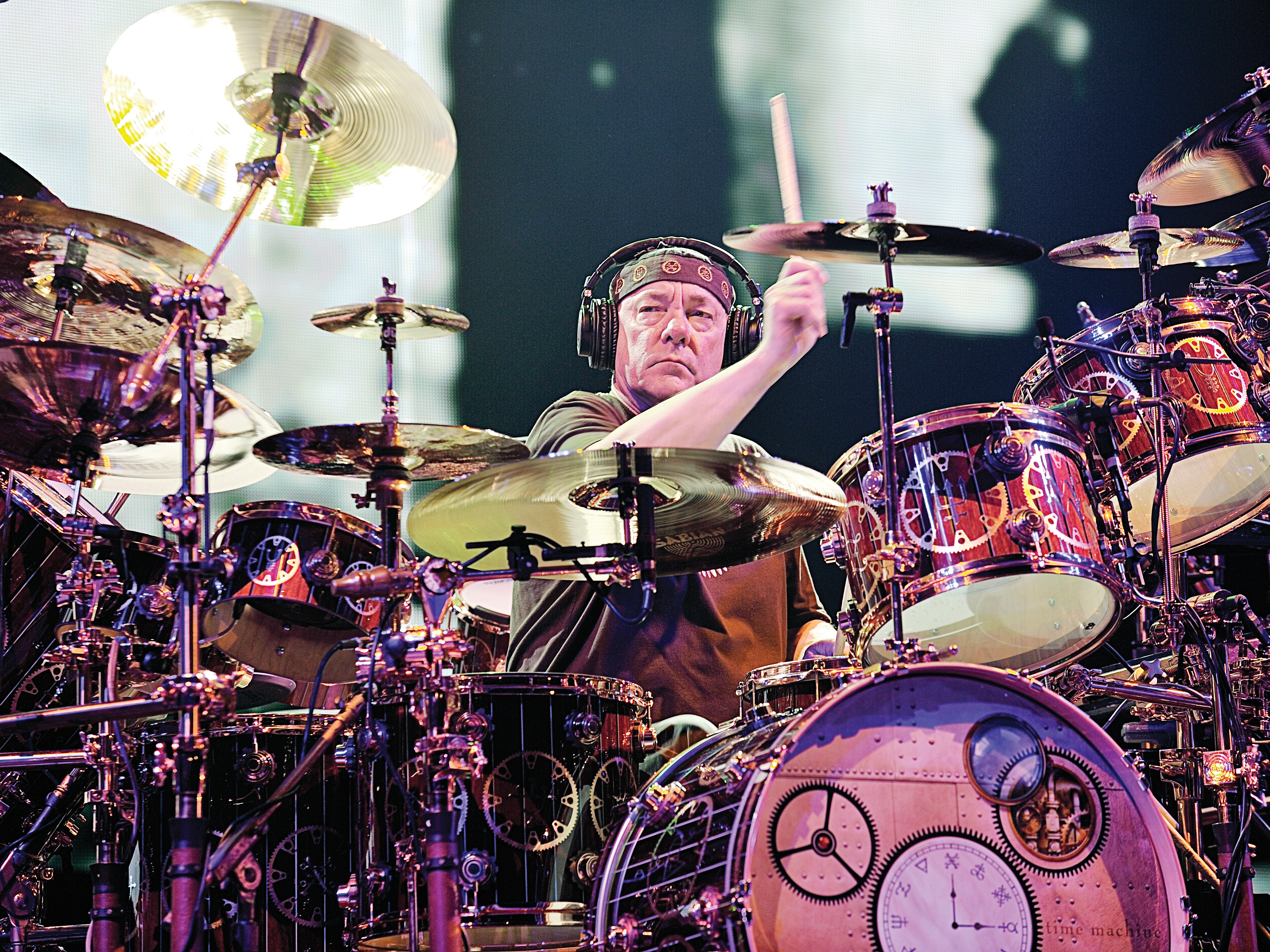
Neil on… how his playing with Rush has evolved
“My bandmates and I were talking the other night about how the time-sense we have now is different from what we had before as a band. I feel it in myself, through working with those teachers and continuing to push myself in different directions.
"Being comfortable with improvisation has made me a better composing drummer, for that reason that I can hear those two things at once – what is and what might be. Now, when we’re playing a song and something goes wrong, I can still hear what should be happening and then what is happening and compare and correct it. I’m sure that’s how I’ve learned that, from forcing myself into that open, dangerous zone – every solo every night. Even with the newer songs we’re working on I’m doing more and more of that. As we play them live there are fills I change every night. I never used to do that. It’s a new frontier for me, and how wonderful after 45 years of playing, not only do I have new frontiers technically but the band comes with me on those, and through all of our stages that each of us has gone through musically we have all grown together like that.”
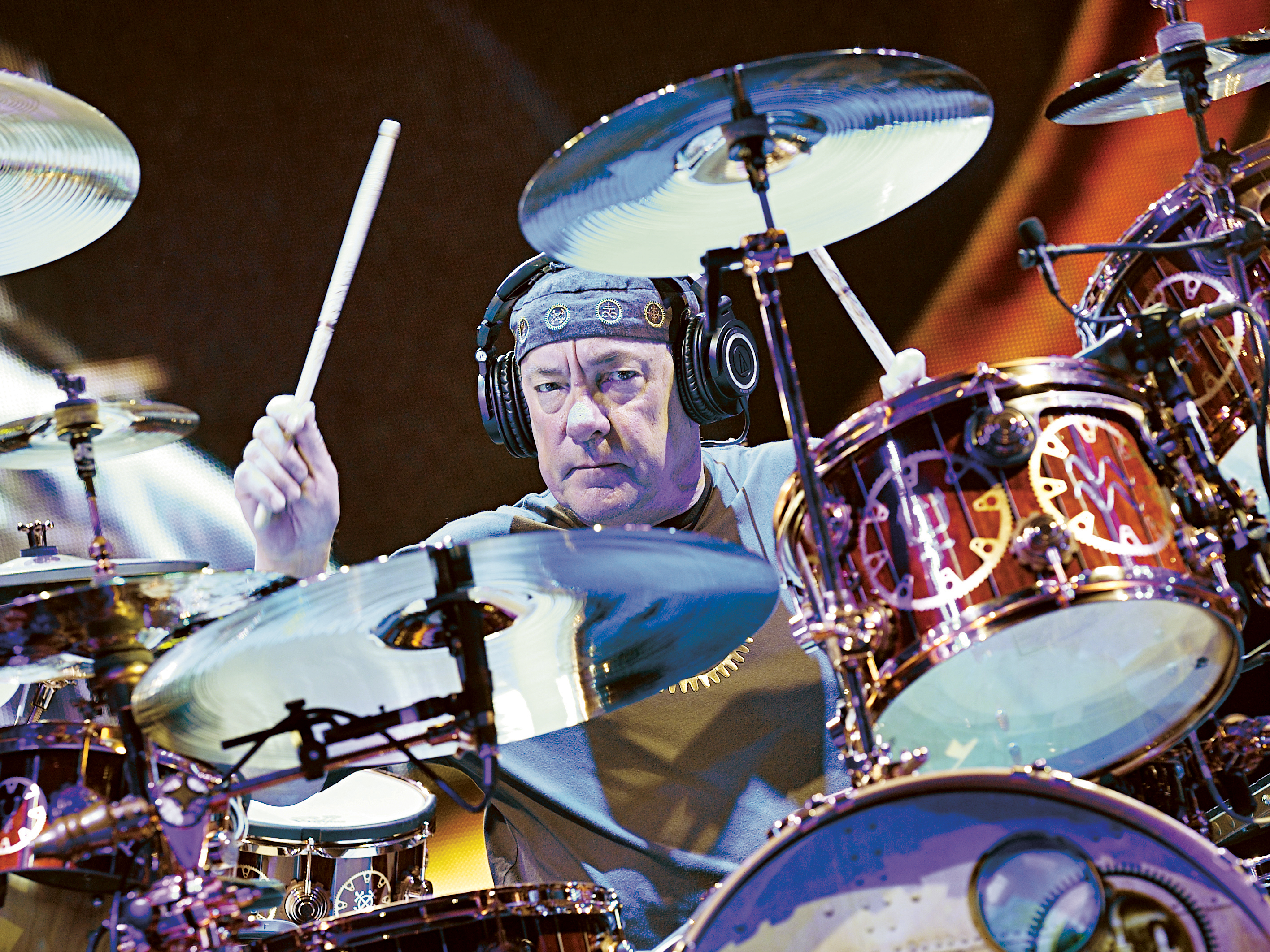
Neil on… having the respect of your peers
“There is nothing I’d rather have than the respect of other musicians, but respect is something you have to earn continually. It’s a responsibility.
Like playing live, it’s my responsibility to perform as musician. It’s my responsibility to get better and if people are admiring the work I do then that’s even more inspiration to improve and to take it up a notch and not repeat myself. The hunger for improvement and exploration really does derive from the acclaim. I know that people give me that respect so I feel I have to earn it.”
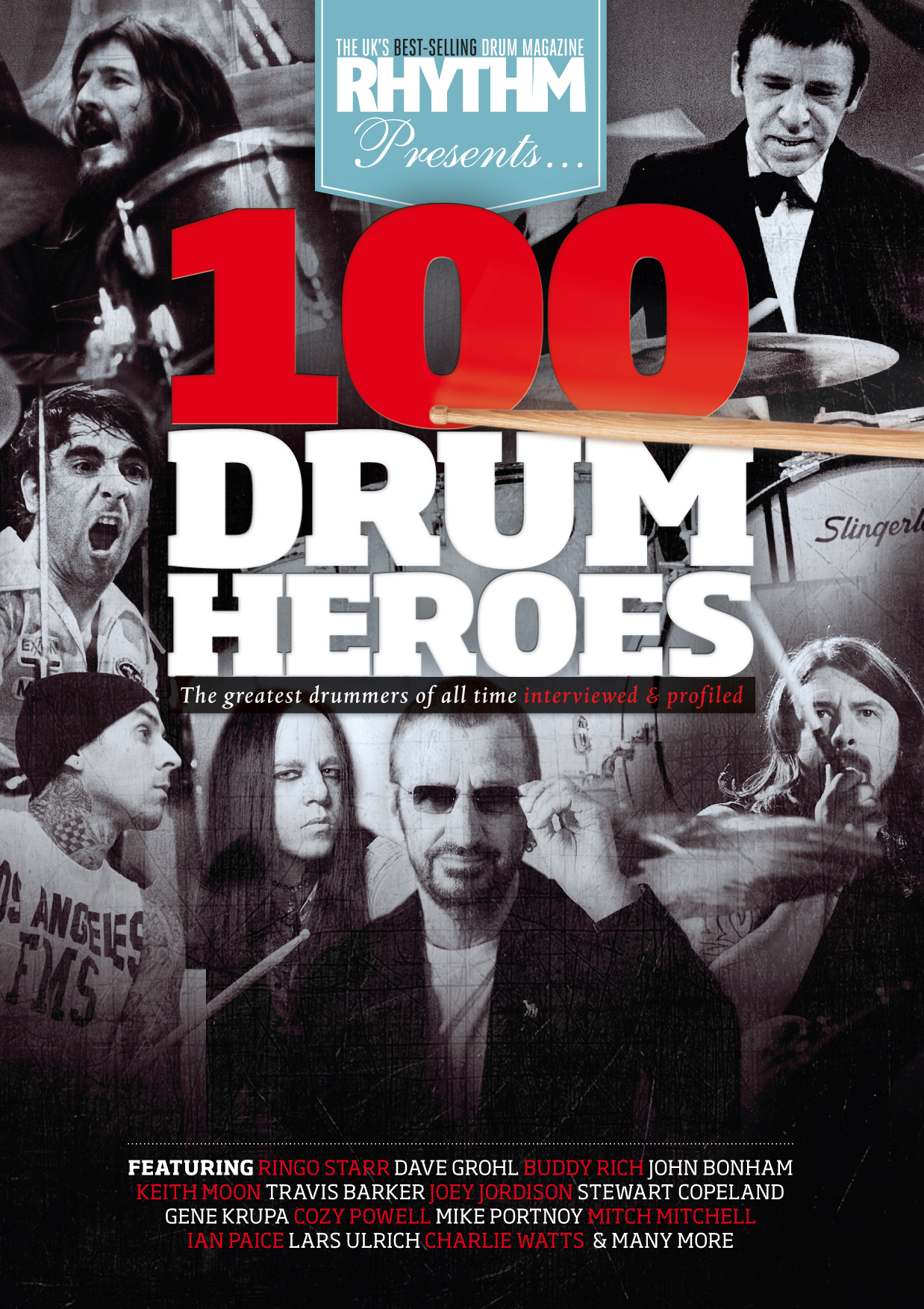
Want more Heroes?
Rhythm Presents 100 Drum Heroes includes exclusive interviews and photos from Rhythm’s29 years as the UK’s biggest drum mag! Drum heroes discuss their music, playing techniques, gear and career highlights. At 200 pages-plus, it's an essential read for fans of drumming and drummers across all genres of music.
100 Drum Heroes is available right now in all good newsagents, online from myfavouritemagazines.com and digitally for iPad from Apple Newsstand!